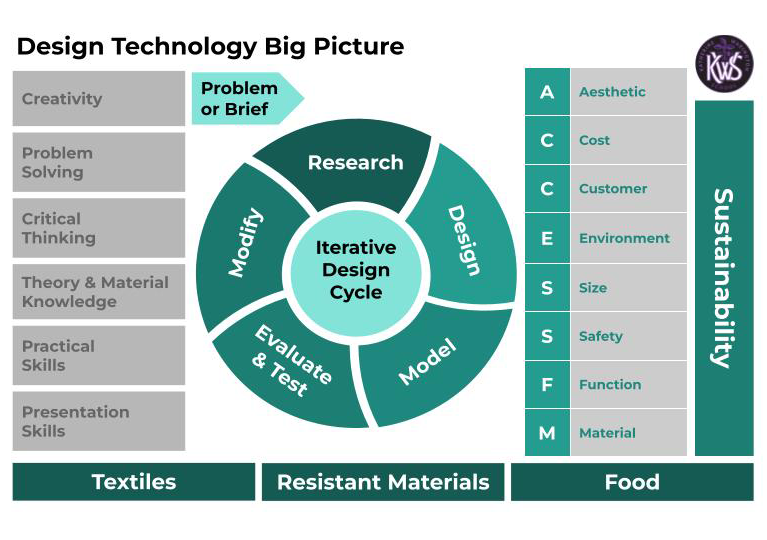What is the exam board and specification?
AQA GCSE Design & Technology – 8552 Exam Board Link
What will you study?
GCSE Design and Technology (Textiles) will prepare students to participate confidently and successfully in an increasingly technological world. Students will gain awareness and learn from wider influences on Design and Technology including historical, social, cultural, environmental and economic factors. Students will get the opportunity to work creatively when designing and making and apply technical and practical expertise. Our GCSE allows students to study core technical and designing and making principles, including a broad range of design processes, materials techniques and equipment. They will also have the opportunity to study specialist technical principles in greater depth.

How will you be assessed?
Students will be assessed on the practical application of core technical principles, specialist technical principles and designing and making principles.
The course contains two components: a non-examination assessment and examination.
Examination:
- Written exam: 2 hours
- 100 marks
- 50% of GCSE
Non-examination assessment(practical application of principles):
- 30-35 hours approx
- 100 marks
- 50% of GCSE
What qualities do I need to be successful in the subject?
This course allows for the development of essential skills such as problem solving, critical thinking and creativity as well as practical skills such as use of sewing machines and sewing techniques. As Design & Technology (Textiles) is a practical based subject, work produced will be unique to the student and dependent on the dedication shown to completing quality work. Students will also need a basic understanding of KS3 maths and science as part of the subject specification.
What future opportunities can I have with this subject?
From this course there are several avenues that can be explored including continuing on to complete an A-level course in textiles or fashion, college courses and apprenticeships. Looking further there are many university courses that can offer a wide variety of design courses. Popular careers include: Fashion designer, Textile designer, Interior designer or costume designer.
Who should I contact for further information?
Speak to Miss Hammond – e.hammond@kwschool.co.uk

